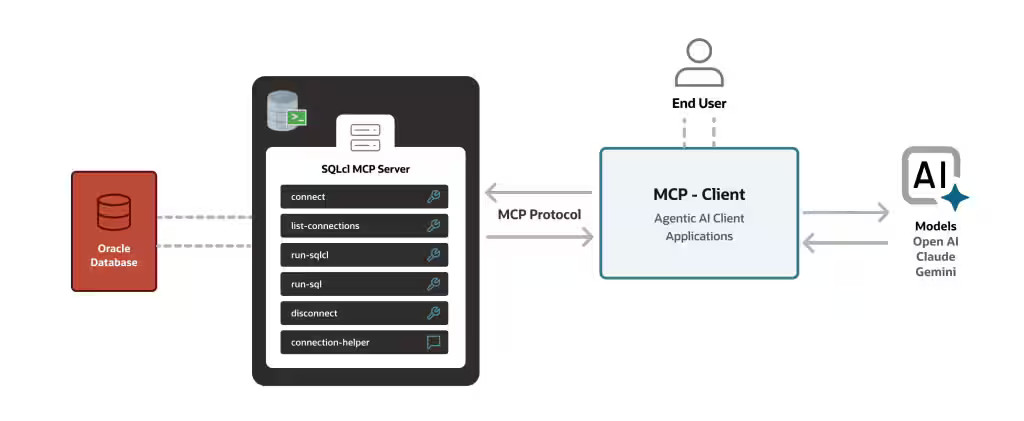Oracle just dropped a significant announcement that could change the daily workflow for data analysts. In a new blog post, the company revealed MCP Server for Oracle Database, a new tool that allows AI assistants (Gemini, ChatGPT, and other LLMs) to securely and directly interact with Oracle databases via SQLcl, Oracle’s command-line interface (CLI).
Despite Oracle's market share in RDBMS’ having dropped to about 10% (from 42% in 2017), with MySQL and PostgreSQL now holding the majority, Oracle remains a leader in the field, making this development noteworthy.
While it obviously only works for Oracle, this represents momentum and more integration between databases and AI tools.
So what does this actually mean for you? Let's break down the impact.
For the Data Analyst: Your Job Just Got Faster
Here’s how it could affect your day-to-day:
- Explore at the Speed of Thought: Instead of manually writing queries to understand a new database, you can now use natural language commands like, "Tell me about the tables in this database," and get a summarized, easy-to-read response. This dramatically cuts down on the tedious discovery phase of a new project.
- From SQL Generator to Active Partner: With the new MCP server, your AI assistant can now execute that SQL instead of just suggesting queries. This turns your AI into an active partner in your extraction of data.
- Upskill on the Fly: Struggling with a complex query? Your AI can now build it, run it, and show you the results, helping you learn and apply advanced techniques in real-time.
For the Analytics Leader: A Force Multiplier for Your Team
If you're managing a team of analysts, this news signals a major shift in productivity and strategy:
- Boost Team Efficiency: By automating routine data discovery and query writing, your team can focus on what they do best: performing the analysis & delivering strategic insights. This means faster turnaround on critical projects and a higher overall output.
- Enable Safe Self-Service: The platform is built with security in mind. You can create read-only database connections with limited permissions, empowering business users to ask simple data questions in plain English without needing to file a ticket with your team. It can also help clear the backlog of ad-hoc requests.
- The Future is Agentic: Oracle has signaled that this is just the beginning, with plans to release more advanced tools for performance monitoring and data management. The role of the analyst is evolving, and understanding how to leverage AI agents will be a critical skill for high-performing teams.
This move by a titan like Oracle is a clear signal that the era of AI-driven database interaction is here.
